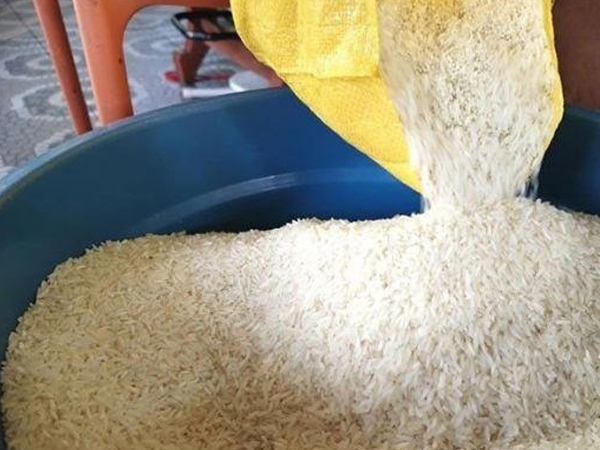 MANILA, Philippines — Rice importers will have the leverage to delay purchases and even buy at a bargain once the country’s rice import ban is lifted as global prices remain soft due to a supply glut, the International Rice Research Institute said.
MANILA, Philippines — Rice importers will have the leverage to delay purchases and even buy at a bargain once the country’s rice import ban is lifted as global prices remain soft due to a supply glut, the International Rice Research Institute said.
In a market brief, IRRI senior scientist Alisher Mirzabaev and The Rice Trader president and CEO Jeremy Zwinger assessed the impact of the Philippines’ 60-day rice import suspension, which started last Sept. 15, on global rice trade.
The authors noted that the country’s rice import ban came at a time when global rice prices softened by double-digit rates due to record-high world supply.
The global market situation has led to exporters like Vietnam and Thailand facing thinner profit margins and storage glut. The authors claimed that Vietnamese rice exporters have become “anxious” about the import ban since the Philippines is their top market.
The situation seems favorable for rice importers in the country since the two-month import ban ordered by President Marcos would “accelerate” a “buyers’ market dynamic” in the global rice trade, according to the market brief.
“(Philippine) importers can delay purchases or bargain for lower prices given abundant options, while exporters confront rising unsold stocks and carrying costs that change the trade equation,” the market brief read.
“If the September–October 2025 harvest meets expectations, local supply should be sufficient to temper retail prices through the ban period,” it added.
Last week, Agriculture Secretary Francisco Tiu Laurel Jr. said he is inclined to recommend to President Marcos to extend the import moratorium by at least 15 days as local palay prices continue to improve since the temporary ban was implemented.
Citing Department of Agriculture data, Tiu Laurel said palay prices in Mindanao have reached as much as P17 per kilo and P14 per kilo in Isabela and Nueva Ecija from a range of P8 to P10 per kilo before the import ban.
The imposition of the temporary import ban, the DA said, was aimed at lifting local palay prices that have been impacted by the entry of cheaper imported stocks that have benefited from the reduction of rice tariffs to a record-low 15 percent.
Rice imports as of Sept. 11 reached 3.08 million metric tons, with nearly 2.5 million metric tons sourced from Vietnam, the country’s top supplier, based on Bureau of Plant Industry data.














© Copyright 2025 The SSResource Media.
All rights reserved.